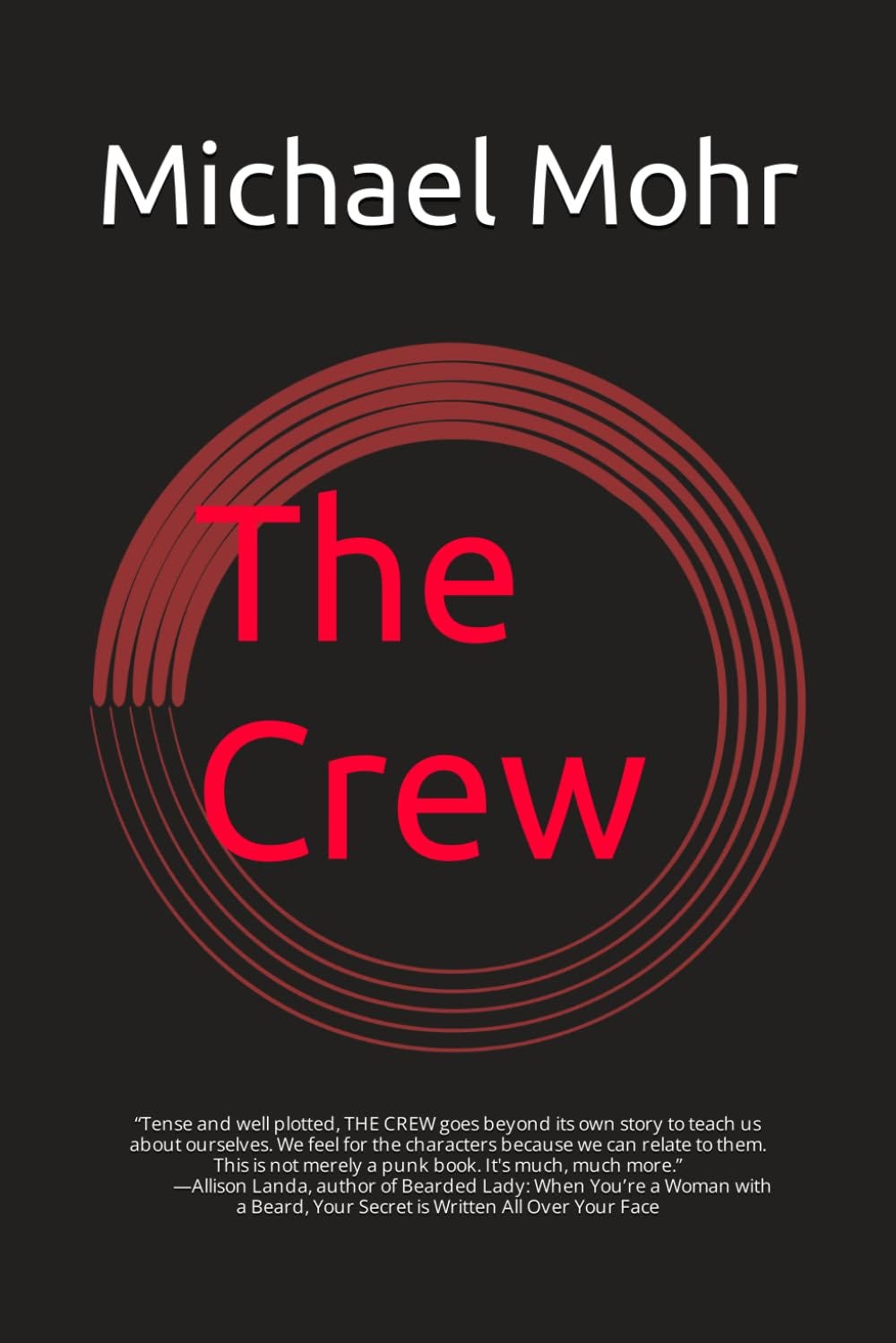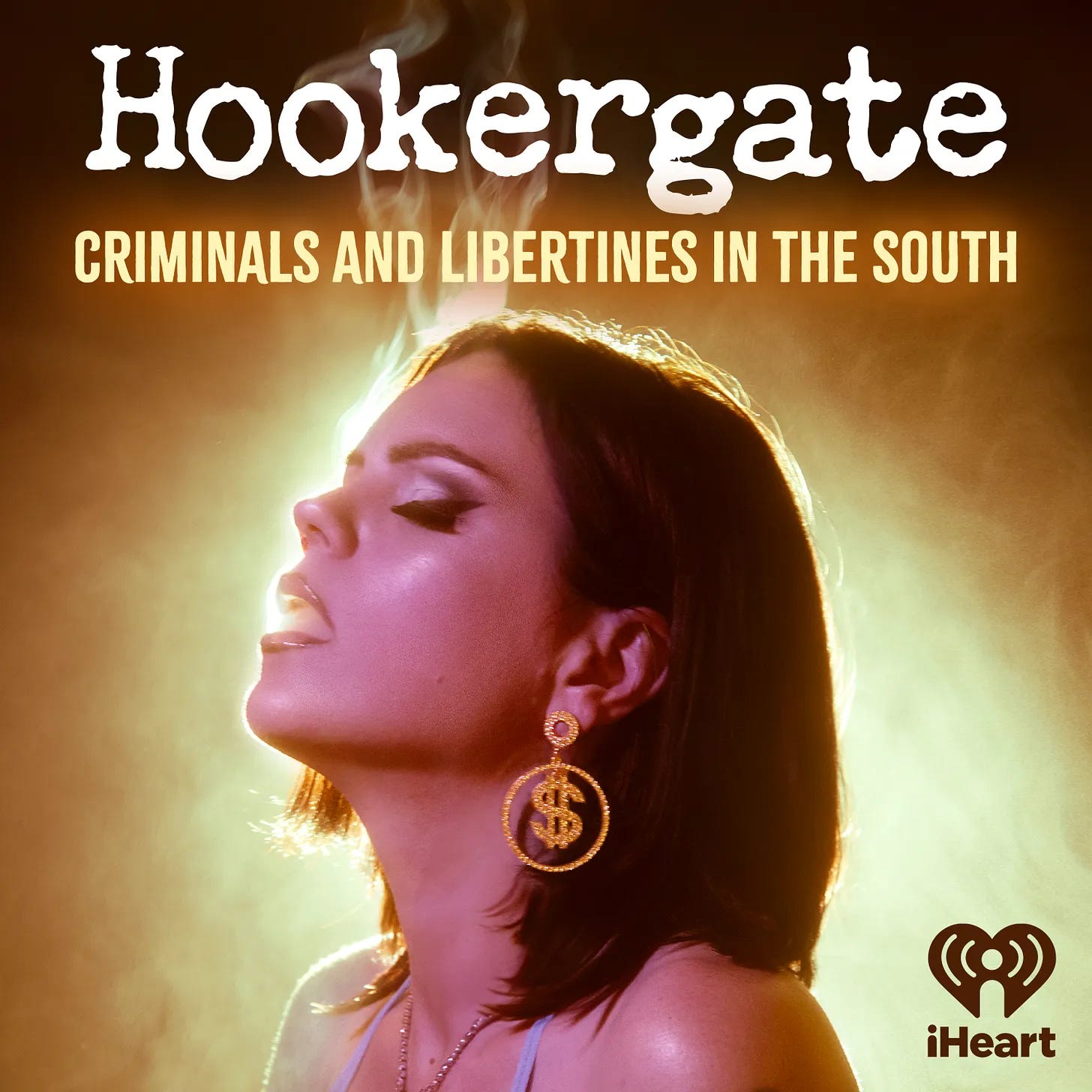
#####TWO HOUSEKEEPING NOTES#####
(1) ***FREE eBook giveaway right now for my punk literary novel, The Crew! Trust me: You won't be able to stop reading. Give it a chance.
Think Catcher in the Rye meets The Basketball Diaries meets The Sex Pistols and Ramones. Teenage punk rock kids who love literature and philosophy.
Deep characters. Fast pace. Universal themes. For adults and teens.
And please: *REVIEW* on Amazon, Barnes and Noble, etc!
CLICK HERE FOR THE NOVEL
AND…
(2) Tomorrow, look forward, at 4:15am, to a guest post from the lovely and fascinating Dr. Lindsay Byron, aka Lux ATL, memoirist, former stripper, ex-English professor, PhD, lifelong artist and hustler telling tumultuous true stories from her wild life. Read her memoir, Too Pretty To Be Good.
Lux is now the podcast host of: HOOKERGATE: Criminals and Libertines in the South, which focuses on a high profile Southern prostitution ring during the early 1970's.
What is the point, the ultimate meaning or purpose of life? Is there one? Is there none? If none: Why keep existing? Just to struggle and work and keep growing older and eventually die? Why? What is the reason, the argument for doing that? Is suicide actually irrational? If so: Why, exactly? Is life actually a so-called “gift” or is it bullshit wrapped in a pretty bow?
I don’t have any discernible answers to these complex questions, of course. And I don’t think it’s a binary. It may be that there is no inherent “meaning” in life and that we must therefore create our own unique sense of meaning. The existentialists said that; cue Sartre and Camus. Kierkegaard discussed this and said that the way to handle the lack of inherent meaning is by using the tool of FAITH. Belief in God, or at least in something greater than yourself. (Alcoholics Anonymous takes you to this place, too, a la a Higher Power.) I have found this to be true in my own personal way; not “God” as in Jesus or some religious manner, but “god” as in a spiritual sense of purpose in life. Finding passion I value and driving my energy in that direction. This is what writing is for me.
Death strikes us all eventually, sooner or later. This is a universal truth. No one escapes this fate. That should give us all great pause. All the money, all the sex, all the fame, all the attention, cannot save you from death. And once you’re gone, you can’t enjoy any of the things you achieved. (As they say: You can’t take it with you.) Your consciousness is easily snuffed out; poof, like clamping two wet fingers together against a dim blue flame. Out. Gone. Forever. This should—theoretically—make most of us be immediately in the present, uncaring about shitty jobs and superficial social-media lives and fame and all the other bullshit. But it doesn’t. Actually, it goes the opposite way: People use as many distractions as possible to prevent a sense of death being real. To most people they even understand and agree with this idea outright. Of course, they say, Why would I WANT to focus on the inevitability of death?
I find this response bizarre. Since the only thing we can rely on 100% for sure is death, wouldn’t you therefore want to believe in it? And if you’re going to believe in it, wouldn’t you therefore want to face it instead of avoiding its steely cruel gaze? Facing death, ironically, can actually bring inner peace. It’s the running away from reality that causes all our suffering. The Buddhists tell us that. Instead, we have to look Death right in the eyes and become friendly with Him. He—Death—is really the “God” if there ever was one. The deepest, truest, harshest God which ever existed. (The other gods of course never existed; we created them out of our tragicomic imaginations, spinning out myths by which to understand the world around us. But Death; this is no myth. This is life. Truth. Inevitability.)
Earnest Becker wrote The Denial of Death—which I wrote about several times—in 1974. He uses Kierkegaard, Freud, Joseph Campbell and many others to explain the looking at, versus avoiding It. Because It is going to happen whether you like it or not. And we don’t know when. Or how. Or why. That sounds scary—and it is, on a certain physical baseline level—but on the flip side; it’s just the way it is, always has been and most likely always will be…unless AI turns us fully into robots and/or the medical world discovers a way to prolong death eternally. (Both potentially possible, I suppose. We currently live in a Post-Truth world. Perhaps in 1,000 years—or even 500—we’ll exist in a Post-Death world.)
Most people find me “intense” because I want to think about, look at and talk about death. But is it really “intense” to want to face Reality? Or is denying What Is more “intense”? Sociological standards agree intrinsically on certain taboos. One is about focusing “too much” on Death. But couldn’t it be argued—persuasively—that by denying, rejecting, categorically deleting the truth of death actually hinders us as spiritual, loving, fully-actualized human beings? If you cannot look at The Big Black Monster, can you really understand the depth of human truth? Can you honestly grasp the complexity and nuance inherent in the human condition? Can you love yourself or anyone else fully if you cannot accept the thing which we all cannot change no matter how hard we try?
What does it mean to be alive? What is “living” life? Is simply existing enough? Kierkegaard wrote that the meaning of life cannot be simply to work in order solely to continue existing. In other words: There must be something more spiritually fulfilling, more nourishing and juicy than simply working to live. What is that “thing”? Purpose. Meaning. Direction. Expression. Some people possess this. Some don’t.
For me it’s writing. I experience pieces of it when backpacking, traveling, going on road trips, being with my wife (aka being in love), being with animals. Reading. Debating. But writing; that is really where I find my passion, my potential, my selfish heroism, my own mythos.
Writing is where I fully face Death.





Great points. I think we as a society should discuss the inevitable. It is said that 50% of Americans do not have a will. IMO that speaks volumes about how we collectively view death. I see being prepared and open about death is the gift you can give to your family. Since the actual death part is hardest on the living why burden them more. I guess I look at death in a more practical way rather than philosophical or maybe both? Not sure.
One answer to this question comes from Willa Cather's "Lucy Gayheart." Lucy has suffered a devastating personal loss -- the death of her lover -- and is trying to find a way forward through her grief. I love her epiphany here, which I think is universal enough.
“Suddenly something flashed into her mind, so clear that it must have come from without, from the breathless quiet. What if—what if Life itself were the sweetheart? It was like a lover waiting for her in distant cities — across the sea; drawing her, enticing her, weaving a spell over her…. Oh, now she knew! She must have it, she couldn’t run away from it. She must go back into the world and get all she could of everything that had made him what he was. Those splendours were still on earth, to be sought after and fought for.”
Life itself as the lover. Works for me.
See the full post here: https://joshuadolezal.substack.com/p/how-do-you-know-if-your-eureka-moments